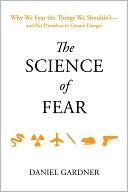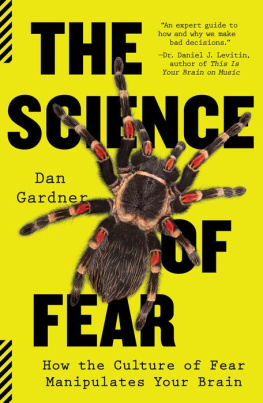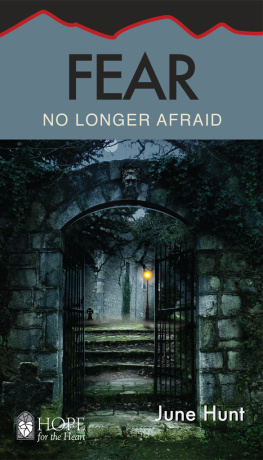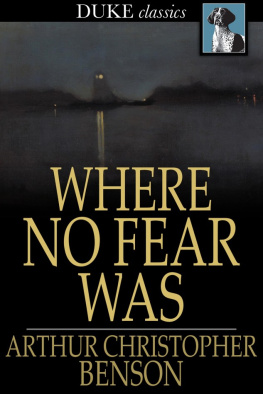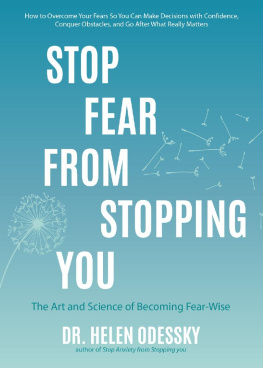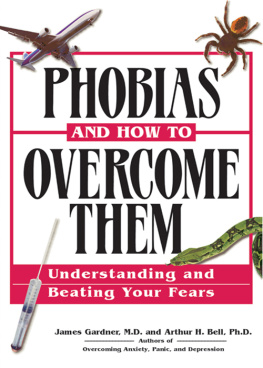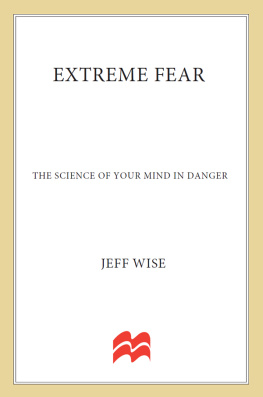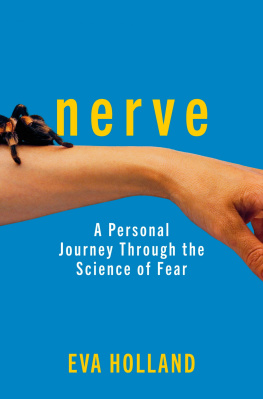Daniel Gardner - The Science of Fear: Why We Fear the Things We Shouldnt--and Put Ourselves in Greater Danger
Here you can read online Daniel Gardner - The Science of Fear: Why We Fear the Things We Shouldnt--and Put Ourselves in Greater Danger full text of the book (entire story) in english for free. Download pdf and epub, get meaning, cover and reviews about this ebook. year: 2008, publisher: Dutton Adult, genre: Romance novel. Description of the work, (preface) as well as reviews are available. Best literature library LitArk.com created for fans of good reading and offers a wide selection of genres:
Romance novel
Science fiction
Adventure
Detective
Science
History
Home and family
Prose
Art
Politics
Computer
Non-fiction
Religion
Business
Children
Humor
Choose a favorite category and find really read worthwhile books. Enjoy immersion in the world of imagination, feel the emotions of the characters or learn something new for yourself, make an fascinating discovery.
- Book:The Science of Fear: Why We Fear the Things We Shouldnt--and Put Ourselves in Greater Danger
- Author:
- Publisher:Dutton Adult
- Genre:
- Year:2008
- Rating:5 / 5
- Favourites:Add to favourites
- Your mark:
- 100
- 1
- 2
- 3
- 4
- 5
The Science of Fear: Why We Fear the Things We Shouldnt--and Put Ourselves in Greater Danger: summary, description and annotation
We offer to read an annotation, description, summary or preface (depends on what the author of the book "The Science of Fear: Why We Fear the Things We Shouldnt--and Put Ourselves in Greater Danger" wrote himself). If you haven't found the necessary information about the book — write in the comments, we will try to find it.
The Science of Fear: Why We Fear the Things We Shouldnt--and Put Ourselves in Greater Danger — read online for free the complete book (whole text) full work
Below is the text of the book, divided by pages. System saving the place of the last page read, allows you to conveniently read the book "The Science of Fear: Why We Fear the Things We Shouldnt--and Put Ourselves in Greater Danger" online for free, without having to search again every time where you left off. Put a bookmark, and you can go to the page where you finished reading at any time.
Font size:
Interval:
Bookmark:

Published by Penguin Group (USA) Inc.
375 Hudson Street, New York, New York 10014, U.S.A.
Penguin Group (Canada), 90 Eglinton Avenue East, Suite 700, Toronto, Ontario M4P 2Y3, Canada
(a division of Pearson Penguin Canada Inc.); Penguin Books Ltd, 80 Strand, London WC2R
0RL, England; Penguin Ireland, 25 St Stephens Green, Dublin 2, Ireland (a division of Penguin
Books Ltd); Penguin Group (Australia), 250 Camberwell Road, Camberwell, Victoria 3124,
Australia (a division of Pearson Australia Group Pty Ltd); Penguin Books India Pvt Ltd,
11 Community Centre, Panchsheel Park, New Delhi110 017, India; Penguin Group (NZ),
67 Apollo Drive, Rosedale, North Shore 0745, Auckland, New Zealand (a division of Pearson
New Zealand Ltd.); Penguin Books (South Africa) (Pty) Ltd, 24 Sturdee Avenue, Rosebank,
Johannesburg 2196, South Africa
Published by Dutton, a member of Penguin Group (USA) Inc.
First printing, July 2008

http://us.penguingroup.com
Font size:
Interval:
Bookmark:
Similar books «The Science of Fear: Why We Fear the Things We Shouldnt--and Put Ourselves in Greater Danger»
Look at similar books to The Science of Fear: Why We Fear the Things We Shouldnt--and Put Ourselves in Greater Danger. We have selected literature similar in name and meaning in the hope of providing readers with more options to find new, interesting, not yet read works.
Discussion, reviews of the book The Science of Fear: Why We Fear the Things We Shouldnt--and Put Ourselves in Greater Danger and just readers' own opinions. Leave your comments, write what you think about the work, its meaning or the main characters. Specify what exactly you liked and what you didn't like, and why you think so.

